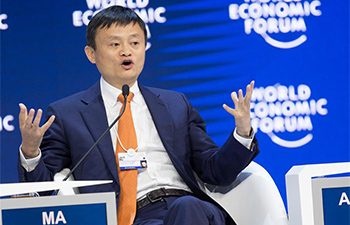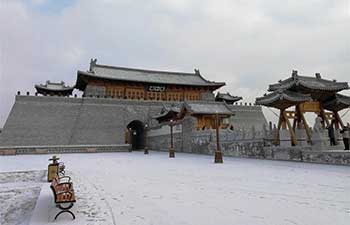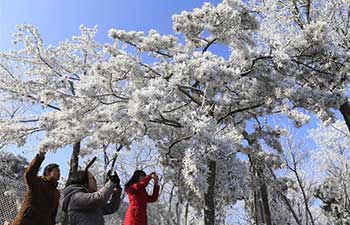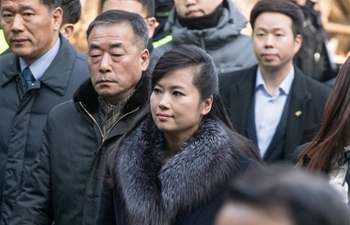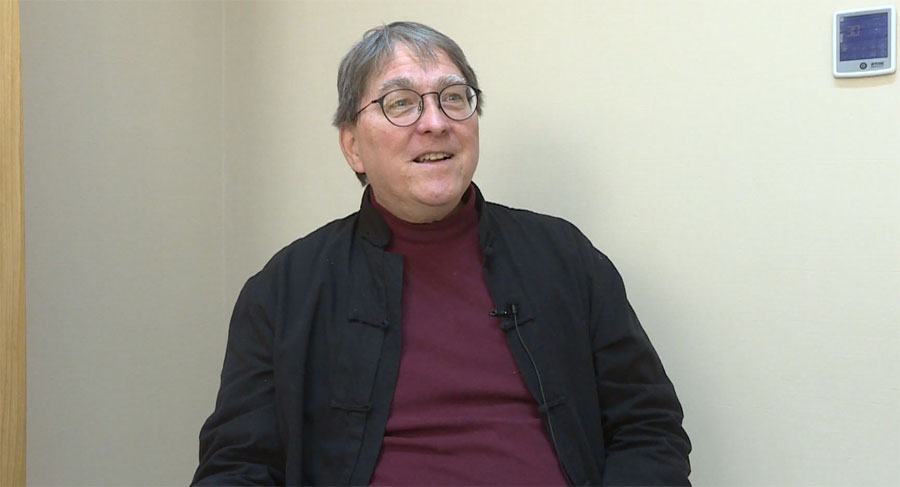
David Moser gives an interview to Xinhuanet at the Peking University in Beijing, Jan. 11, 2018. (Xinhuanet)
BEIJING, Jan.25 (Xinhuanet) -- In 1987, young David Moser came to the Peking University as a visiting scholar from the U.S. to learn Chinese.
Thirty years later in 2017, he was back in the University with a new position --- associate dean of the Yenching Academy.
Now he helps foreign students at different levels of engagement in Chinese language learning and experiencing Chinese culture.
Regarding himself as a cultural ambassador, Moser said being a bridge between Chinese and western cultures, and helping people better understanding each other make him excited.
"In 1980s, when I just started to know about China, there were not many foreigners studying Chinese," said Moser, recalling the time when he was a Phd student majored in linguistics at the University of Michigan.
His academic interest was how a person’s native language could influence his thinking process. And he chose Chinese as comparison to English for his experiment.
Just for this, Moser started to learn Chinese, but he soon found the textbooks and lectures very boring.
One day, when he was listening to the radio and suddenly heard a Chinese crosstalk telling jokes and puns, he soon fell in love with it and bought a bunch of Chinese crosstalk tapes.
At that time, few foreigners were interested in and learned Chinese crosstalk, so he was recommended by Wang Jingshou, an expert on crosstalk, to a TV show.
"That was the first time I was on TV. It was around 1993," said Moser.
After that, Moser made more TV appearances with Chinese crosstalk and even entertained the audiences during China's grandest annual art performance -- the Spring Festival Gala in 1999.
After earning his Phd degree, Moser found a job in China and started his career as a teacher, which is one of the titles he values most until today.
Moser taught in the Beijing Foreign Studies University and Capital Normal University for almost 20 years. He gained great experience, especially in teaching foreign students Chinese language and culture.
Moser believed the achievements of China's reform and opening-up policy are best reflected in the growing enthusiasm for learning Chinese in recent decades.
In his mind, though learning Chinese is a hard job, it is becoming much easier than it used to be. "And there are a lot more new tools and new ways for them to learn, such as the internet and multimedia," said Moser.
What's more, people come to realize the growing importance of Chinese language against the background of China's rapidly increasing influence, he added.
Moser knew the hardest thing about learning Chinese for many is the large number and hard-to-grasp characters.
To make daily Chinese vocabularies easier for foreigners, Moser found his knack and suggested them not learn by rote, but by picturing in their mind.
"Now China has many new digital tools to communicate, like WeChat. You can just talk and send voice message," said Moser as a suggestion.
Looking at the smile on his face, you can see he is proud of his work at the Yenching Academy and wants to attract more students.
"We are creating a learning environment here with students from different cultural backgrounds who are very curious about China," said Moser.




